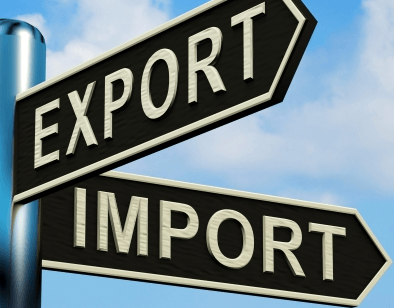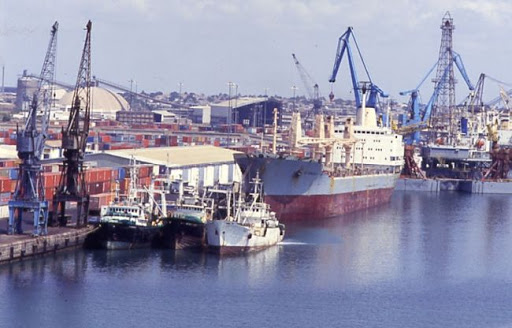
By Juliet ETEFE ([email protected])
The Ghana Statistical Service (GSS) has called for a coordinated national policy response to support and gradually formalise informal cross-border trade rather than suppress it, noting that the sector sustains livelihoods, supports regional commerce and contributes significantly to economic activity.
The call follows findings from the country’s first Informal Cross-Border Trade (ICBT) Survey, which revealed that unrecorded trade activities across Ghana’s borders were valued at GH¢7.4billion in fourth quarter-2024.
The data show that informal trade between Ghana and its three land neighbours – Togo, Burkina Faso and Côte d’Ivoire – represented 4.3 percent of the country’s total trade for the period.
Given the scale of activity, GSS argues that informal trade is “too big to ignore in policy design” – emphasising the need for structured support rather than punitive approaches.
“We are not saying we should go and kill informal trade. We must make it easier and safer for our informal traders to do business. Formalisation must not be by force,” stated Government Statistician Dr. Alhassan Iddrisu.
Speaking at the ICBT Survey launch, Dr. Iddrisu stressed that while informal trade has long been excluded from economic planning and trade policy, it must now be recognised, supported and gradually integrated into formal policy frameworks.
He said reforms should focus on “opportunity, not force”, underscoring that the goal is not to eliminate informal trade but improve conditions and unlock its economic potential.
Further findings
Ghana recorded a trade surplus of GH¢576million with Burkina Faso and GH¢378million with Côte d’Ivoire, but a trade deficit of GH¢539million with Togo.
Informal trade accounted for 61.2 percent of all trade with Togo, 55.7 percent with Côte d’Ivoire and 37.1 percent with Burkina Faso.
The main informal exports were alcoholic drinks (GH¢187million), soft drinks (GH¢170million), petrol and second-hand clothes. The leading informal imports were cooking oil (GH¢270million), mattresses (GH¢171million), rice (GH¢143million), and livestock (GH¢159million).
Food products comprised 49.6 percent of informal imports and 41 percent of informal exports, highlighting their central role in regional food supply chains.
Regional patterns
Upper East Region remained Ghana’s main trade corridor, recording GH¢1.27billion in informal exports – fifteen times higher than Savannah Region, which recorded GH¢82.9million.
Paga was the most frequently used border post for informal imports.
Gender participation data showed that 65.7 percent of export transporters were men while 41.3 percent of import transporters were women, particularly in the Savannah, Western and Northern Regions. Tricycles and motorbikes were the most common means of transport, reflecting the small-scale and frequent nature of informal trade.
Recommendations
These findings reaffirm that informal trade is a vital part of the national economy, linking producers and consumers across borders, supporting food availability and providing income for many households… especially in border communities with limited formal employment.
However, challenges remain – including limited data accuracy, reduced tax collection and the exposure of traders to risks arising from weak regulation, poor infrastructure and limited access to finance.
To address these, GSS recommended: Simplified registration systems; Access to microcredit and financial services; Training in record-keeping and quality standards; and Improved border infrastructure and inspection systems.
It also called for enhanced regional cooperation to harmonise Customs procedures and share trade data, as well as policies to promote domestic production of key imports such as cooking oil, rice and mattresses to reduce import dependence.
Gender-sensitive trade framework
GSS further underscored the need for gender-responsive trade policies, recognising women’s central role in informal cross-border trade – particularly in food distribution and household goods.
It urged the provision of safe trading spaces and border security protocols that protect women traders from harassment and exploitation.
Beyond trader support, the Service recommended linking informal trade to the national industrial strategy, as it serves as a distribution channel for locally manufactured goods and supports efforts to boost domestic production.
The Service also encouraged local manufacturers to view informal trade networks as partners rather than competitors, suggesting collaborations between producers and informal trade associations to strengthen regional distribution and enhance Ghana’s export competitiveness.
GSS advocated integrating informal trade data into national trade strategies, the industrial transformation agenda and African Continental Free Trade Area (AfCFTA) framework.
The post Support-led reforms to gradually formalise informal trade crucial – GSS: As informal cross-border trade hits GH¢7.4bn in Q4 2024 appeared first on The Business & Financial Times.
Read Full Story





















Facebook
Twitter
Pinterest
Instagram
Google+
YouTube
LinkedIn
RSS